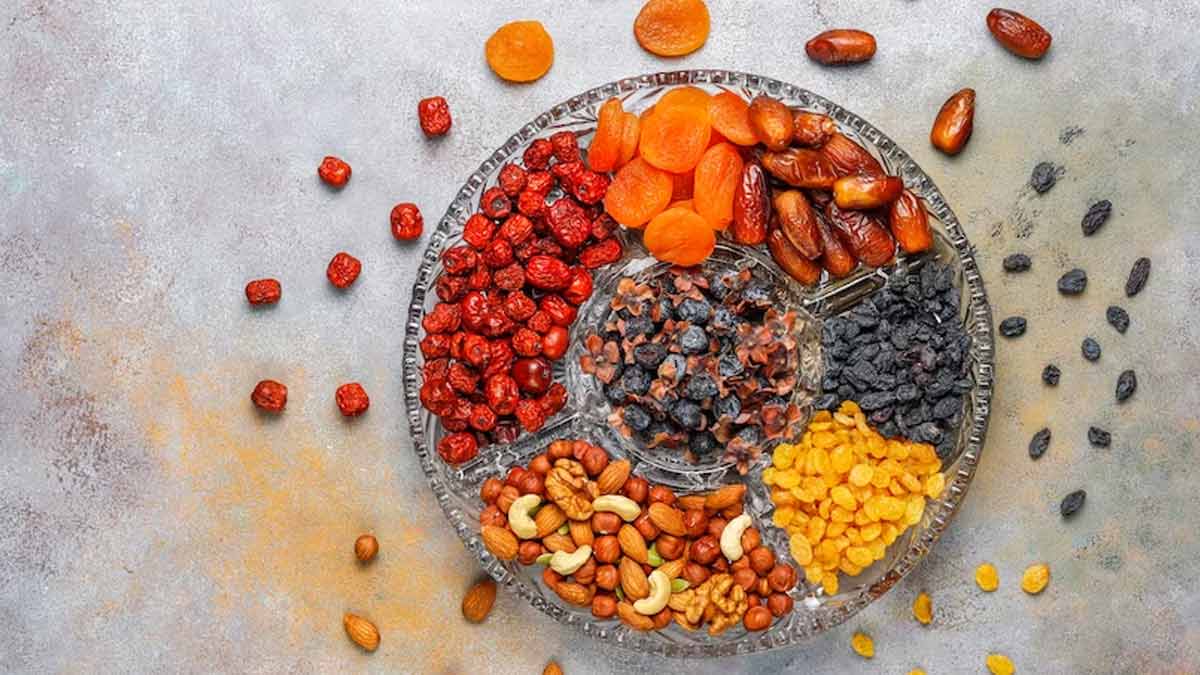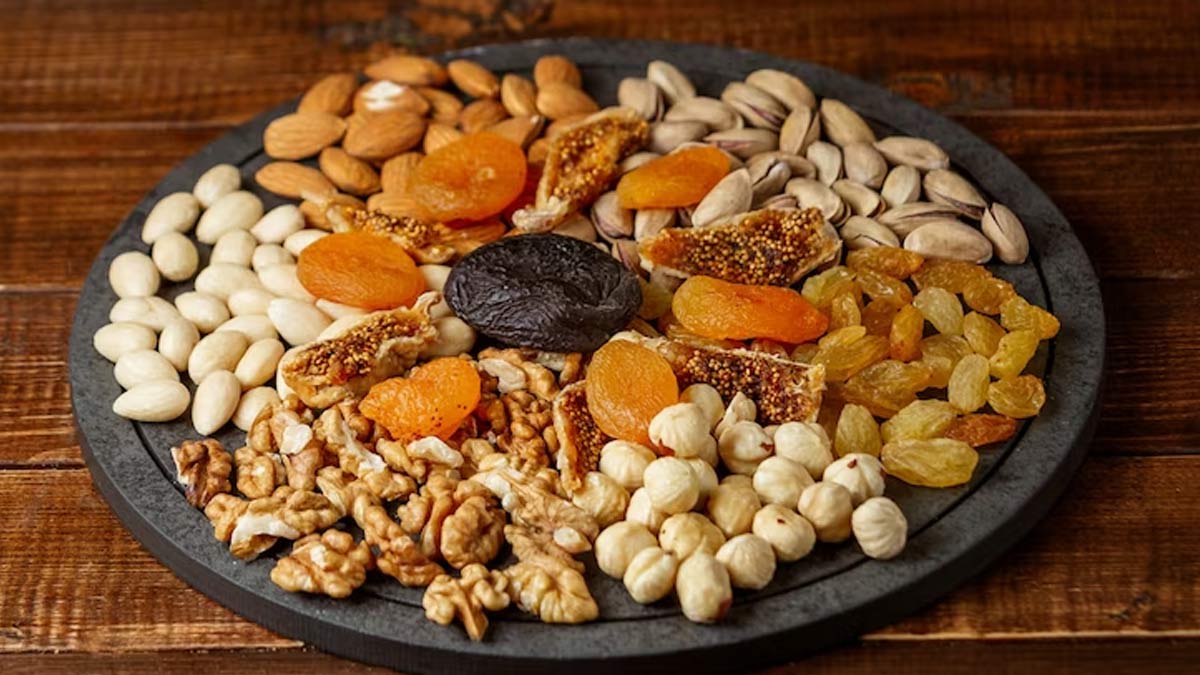
If you are looking for ways to enhance your diet, including dry fruits is one of the best options. They are rich in essential nutrients and provide a plethora of benefits. Many like to consume soaked dry fruits, while others prefer munching them raw. We spoke to our expert Dr Sanjay Kumar, General Physician, Cygnus Laxmi Hospital, who listed things you should keep in mind while eating dry fruits every day.
Table of Content:-
Things You Should Know When Eating Dry Fruits Everyday

Portion Control
Dr Kumar said, “While dry fruits are nutritious, they are calorie-dense. Therefore, it's crucial to practise portion control to avoid excessive calorie intake, as this can lead to weight gain. The recommended consumption is about 1 ounce or 28 grams.”
Nutrient Density
Dry fruits are packed with essential nutrients like vitamins, minerals, and healthy fat and are a valuable part of a balanced diet. However, they shouldn't replace whole fruits and vegetables, which provide a wider range of nutrients and fibre.
According to the Journal of the Academy of Nutrition and Diabetes, dried fruit consumption may encourage increased fruit consumption, improve diet quality, and increase nutritional intake.
Natural vs Added Sugars
Dr Kumar added, “It is essential to be cautious during consumption as some dried fruits, like raisins and apricots, contain natural sugars. Some of them have added sugars or sweeteners that contribute to excessive sugar intake.”
Also Read: Pistachios For Better Sleep: Expert Explains How Pistachios Improve Sleep Quality

Hydration
Dr Kumar said, “Dried fruits like raisins are dehydrated so they can be concentrated sources of nutrients and calories. Hence, drink enough water to help with digestion to prevent issues like constipation.”
Fibre
Dry fruits are a good source of dietary fibre, which aids in digestion and helps you feel full. So the next time cravings hit, grab a handful of dry fruits. This also helps you manage weight effectively.
Nut Allergies
Dr Kumar advises you to be aware of any nut allergies or sensitivities you may have, as many dried fruits are associated with nuts. Cross-contamination can occur, so check labels and choose allergen-free options if needed.

Variety
The best way of eating dried fruits is by mixing different dry fruits. This is because each contains unique nutrients and offers different health benefits.
Also Read: Soaked Vs Raw Almonds: Which Is Healthier And Why?
Sulphites
Dr Kumar said, “Some dried fruits, especially brightly coloured ones like apricots, may contain sulfites as preservatives. If you're sensitive to sulphites or prefer to avoid them, look for sulphite-free options.”
Dental Health
Dried fruits can be sticky and high in natural sugars, which may contribute to tooth decay. Hence, rinse your mouth or brush your teeth after consuming them.
Allergens and Contaminants
Dr Kumar added, “Check for any recalls or contamination issues with the specific brand of dried fruits you choose, especially if you have a compromised immune system or specific dietary requirements.”
Bottomline
Dr Kumar concluded, “Incorporating a moderate amount of dried fruits into your diet can be a healthy choice, but it's essential to do so mindfully and as part of a balanced diet. If you have specific dietary concerns or health conditions, consult with a registered dietitian or healthcare professional for personalised guidance.”
[Disclaimer: The information in this article is shared by a registered healthcare professional and is for informational purposes only. Hence, we advise you to consult your expert before consuming anything, especially if you are dealing with any health issues.]
Also watch this video
How we keep this article up to date:
We work with experts and keep a close eye on the latest in health and wellness. Whenever there is a new research or helpful information, we update our articles with accurate and useful advice.
Current Version